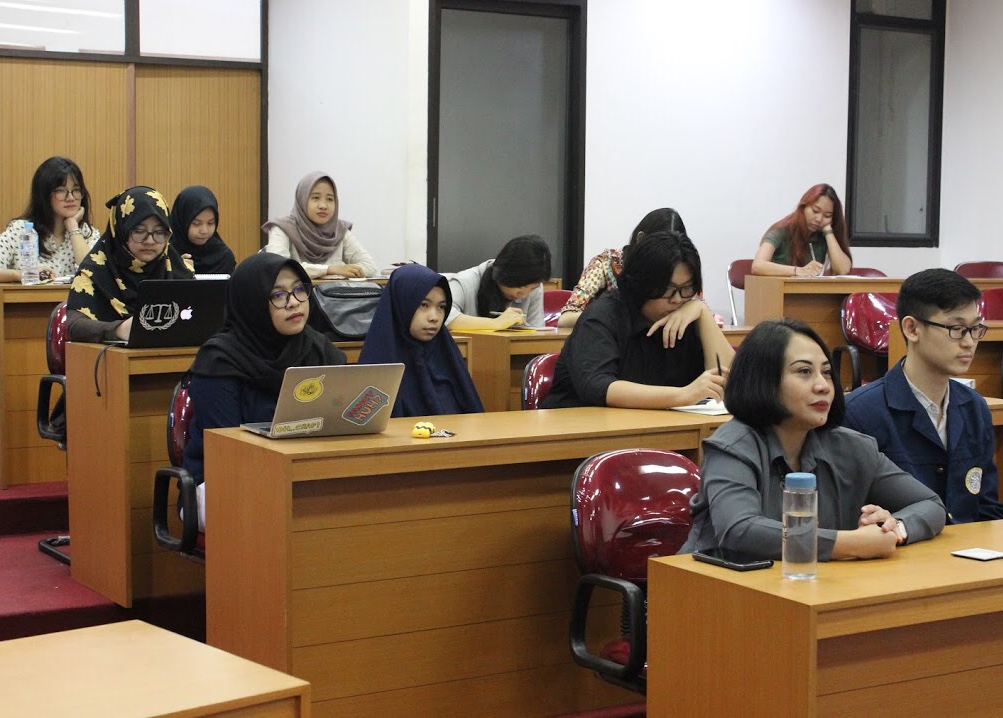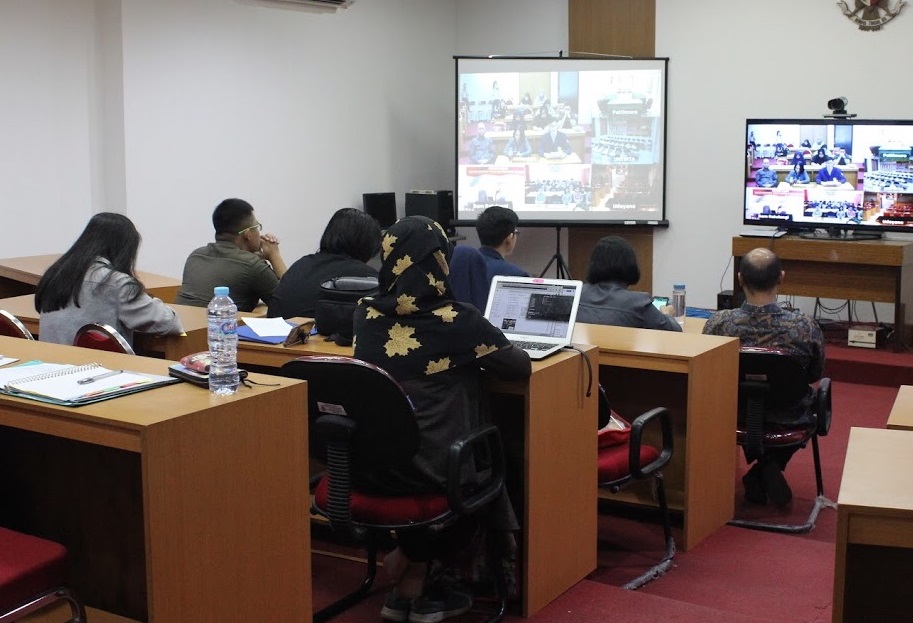UNAIR NEWS – Resolving international disputes between countries can be done in at least five ways. The five ways, according to United Nations Charter (UN Charter) are negotiation, mediation, conciliation, arbitration, and judicial. Through negotiations, two disputing countries can negotiate to resolve their problem peacefully. In this negotiation, the two parties meet directly without involving a third party.
However, many negotiations meet failure, such as the dispute over the boundaries of Indonesia’s Exclusive Economic Zone (EEZ) with Vietnam which has been going on for a long time but has not yet produced an agreement. The case of a trade war between the United States (US) and China which also has not found common ground until now.
For this reason, the Semi-Autonomous Body (BSO) of International Law Student Association (ILSA) Universitas Airlangga Faculty of Law, (FH UNAIR), Sam Ratulangi University Faculty of Law (FH UNSRAT), and Hasanuddin University Faculty of Law (FH UNHAS) conducted a video conference (VIDCON) session to discuss failed negotiations in international disputes. Vidcon was held on Monday, August 27, 2019.
In the vidcon, one of the speakers, Dr. Natalia Lengkong, S.H., M.H., a lecturer of International Law FH UNSRAT explained the factors causing the failure of the negotiation process, such as from the bargaining position.
“Negotiations in international disputes often fail because of the imbalance of the bargaining position; for example, there will be inequality from a superpower country in conflict with non-super power country,” she said.
Bargaining position is the bargaining process of a disputing country by offering a request to reach agreement in a negotiation.
“Usually, a country that gets the title of superpower country will dominate countries with a lower bargaining potential,” Natalia said.
Meanwhile, Dr. Intan Inayatun Soeparna, SH, M.Hum, a lecturer in International Law of UNAIR FH revealed that the negotiator representing his country to negotiate must master the case being disputed. Mastery of the case is the key to successful negotiations.

“The most important thing for a negotiator is that they have to master the case being disputed, ” she said.
Intan continued, a negotiator must also have a high level of confidence in the negotiation process to increase success in the negotiation process. “A negotiator must also have a high level of confidence, and that is much influenced by the mastery of material, much research, and the data supporting the proposal,” she said.
“We must keep it in mind that the negotiation is not a debate. In negotiations, we have proposals, supporting data, arguments. So it must be detailed and complete,” said the lecturer of FH UNAIR who had contributed research and analysis in the clove cigarette dispute of Indonesia-US in the World Trade Organization (WTO). (*)
Author: Sugeng Andrean
Editor: Binti Q Masruroh





